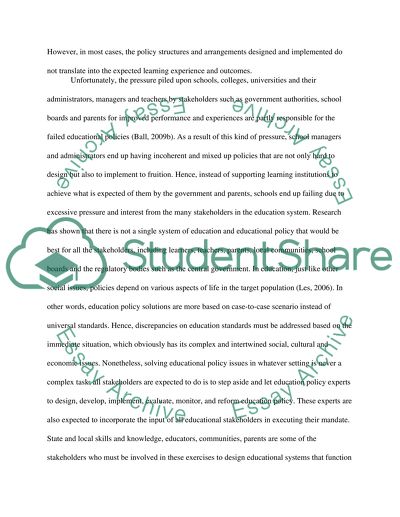Cite this document
(“What is Education Policy Policymaking, Policy Implementation, the Essay”, n.d.)
Retrieved from https://studentshare.org/education/1492587-what-do-we-mean-when-we-talk-about-education
Retrieved from https://studentshare.org/education/1492587-what-do-we-mean-when-we-talk-about-education
(What Is Education Policy Policymaking, Policy Implementation, the Essay)
https://studentshare.org/education/1492587-what-do-we-mean-when-we-talk-about-education.
https://studentshare.org/education/1492587-what-do-we-mean-when-we-talk-about-education.
“What Is Education Policy Policymaking, Policy Implementation, the Essay”, n.d. https://studentshare.org/education/1492587-what-do-we-mean-when-we-talk-about-education.


